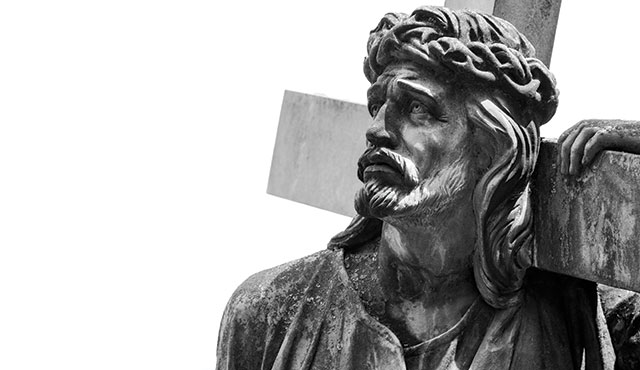As a boy, my Catholic father lived in a mostly Jewish neighborhood in Baltimore. It was common for him to walk home from school to catcalls of “Fish eater!”
Dad sometimes retaliated, shouting back, “Christ killers!”
It sounds shocking now, but the idea that Jews were responsible for Christ’s persecution and death has strained relations between the Catholic and Jewish faiths for centuries.
In the 1930s, many Catholics – just like my father – believed the Jewish people were directly responsible for Jesus’s torture, crucifixion, and death. Until Vatican II, the Church didn’t openly discourage that kind of thinking, either. Indeed, it was accepted, just as St. Paul’s offhand reference in his first letter to the Thessalonians 2:14: “the Jews who killed the Lord, Jesus.”
Vatican II heralds change
Things began to change in 1965. In its “Declaration on the Relationship of the Church to Non-Christian Religions” that year, the Second Vatican Council called upon Catholics to reflect on their attitude toward and relationship with the Jewish people.
The bishops acknowledged the conflicts and tensions that separated Christians and Jews through the centuries and determined that the Church would strive to eliminate them. They underlined the special place Jews hold in the Christian perspective, decried anti-Semitism, and denounced hatred of the Jews.
Popes usher in more change
Pope John Paul II sought to give positive direction to the dialogue, citing the links between the Church and the Jewish people, grounded in God’s Covenant, and noting the importance of collaboration with the Jews for the carrying out the Catholic Church’s mission in the world. In fact, he was the first pope to enter the synagogue in Rome – a particularly powerful moment, since he grew up just a few minutes from the Auschwitz concentration camp.
Pope Benedict XVI, once a Hitler youth, further carried out St. John Paul’s mission, writing in his book, “Jesus of Nazareth, Part II,” that there is no basis in the scripture for the argument that the Jewish people were responsible for the death of Jesus Christ.
Where we are today
The USCCB urges Catholics to focus on the common historical, biblical, doctrinal and liturgical heritage shared by Catholics and Jews. “This involves not only appreciation of the Hebrew Scriptures as a source of faith with their own perpetual value, but also a recognition of Judaism as a living tradition that has had a strong and creative religious life through the centuries since the birth of Christianity from the common root,” the bishops write.
The bishops note that presentations of the Crucifixion story “should not to implicate all Jews of Jesus’ time or of today in a collective guilt for the crime.”
The United States advances unity
The U.S. Catholic Church has the historic opportunity to continue the leadership of the American bishops, who have promoted mutual respect and spiritual kinship between Jews and Catholics.
Indeed, the largest Jewish community in the world lives in the U.S., a land that welcomes immigrants and refugees from persecution. How fitting that American Catholics continue the work of healing the Church’s long rift with the Jewish people.

